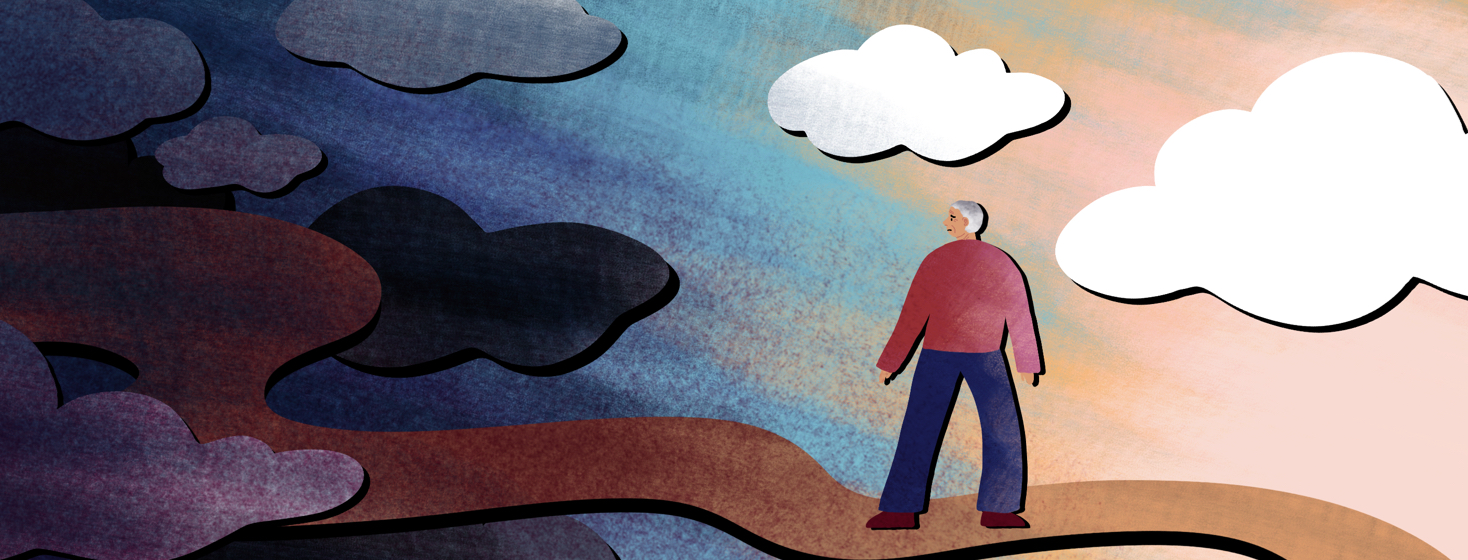Seasonal Affective Disorder and COPD
As the seasons change and the days grow shorter, this time of year often marks the onset of seasonal affective disorder (SAD) for many people, particularly those with COPD. SAD is a type of depression that’s related to the changes in the seasons. It usually begins and ends at the same time every year.
Symptoms of seasonal affective disorder
Symptoms of SAD that usually start in the fall and continue through the winter months are:1
- Feeling down or sad most of the day and nearly every day
- Losing interest in the activities that you enjoy
- Having little or no energy
- Experiencing cravings, overeating, and weight gain
- Difficulty concentrating
- Feeling hopeless
- Having thoughts of not wanting to live
Thankfully, over the years I have only dealt with these a few times.
COPD and its impact on seasonal affective disorder
The times that I have had this, though, I believe having COPD is the key factor in it. Not being able to get out and about as easily as others can be hard.
Between having a hard time getting out in the cold air, which makes our breathing more difficult, and then having anxiety with driving on snow or ice-covered roads, we all know what anxiety and the cold air do to us as well and just make our breathing much harder.
Managing seasonal affective disorder in the winter
I notice it happens more when I cannot get out over the winter months due to the cold and not wanting to drive in that bad weather. I notice the more days that I am stuck in the house, the worse I get. I think the thing that helped me over the years is having my husband take me out, even if it is just for a weekend ride.
There is something about smelling that fresh air and feeling that sunshine on our skin. Being cooped up in the house too long over the winter months makes the days long and the months even longer. We need that break in the wintertime.
Another thing that helps me is every winter, my husband and I take a winter vacation somewhere warm. We save all year, and he saves all of his vacation and sick days to take off for the month of January. Between the long vacation and the rest of the month with him being off work, the month of January seems to fly by.
I think it’s something that helps both my husband and my mental health. It gives us something to look forward to, and having those beautiful winter days in Florida or Arizona makes our winters much more bearable. I have written about these trips here. To read more about our winter trips you can find that here.
Some other things that have helped me with SAD through the fall and winter are keeping busy with exercising, hobbies, and sleeping with sleepovers with my grandkids. I think keeping ourselves busy can help tremendously. I believe that when we get bored and stop exercising that the SAD gets worse.
Start a Forum
Ways to treat seasonal affective disorder
So, what can help us with SAD? According to the National Institute of Mental Health (NIH), some things that can help are:1
- Light therapy: The goal is to expose individuals with SAD to bright light, compensating for the reduced natural sunlight during the darker months
- Psychotherapy: Can support individuals with SAD by teaching them new thought patterns, behaviors, and habit changes that alleviate depression
- Antidepressant medication: Antidepressants help by altering how the brain processes certain chemicals that influence mood and stress
- Vitamin D: Because many people with winter-pattern SAD have vitamin D deficiency, vitamin D supplements may help improve symptoms.
Have you suffered from SAD? What has helped you? Please, share with us in the comments below.

Join the conversation